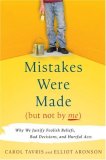 Claire's Original Art Greeting Cards
There is nothing that says I care like a real snail-mail greeting card!
Click on a picture above for a plain-paper printable greeting card pdf.
Print on regular 8.5 by 11 printer paper. Fold twice so that the art is on the front and the title and copyright are on the back.
Write your greeting on the inside.
Mail in an A2 Invitation Envelope.
Claire's Original Art Greeting Cards
There is nothing that says I care like a real snail-mail greeting card!
Click on a picture above for a plain-paper printable greeting card pdf.
Print on regular 8.5 by 11 printer paper. Fold twice so that the art is on the front and the title and copyright are on the back.
Write your greeting on the inside.
Mail in an A2 Invitation Envelope.What’s the Difference between Shame and Embarrassment
April 28th, 2008 · No Comments

What’s the difference between shame and embarrassment? They seem sort of the same to me, so I thought I’d look them up in my favorite dictionary, Merriam-Webster online at m-w.com.*
Shame, it is now recognized, is the primary basis of depression, so understanding shame is important to our mental health. (One reference where you’ll find the source of depression connected with shame is Anger, the Misunderstood Emotion by Carol Tavris, whom I consider the smartest of contemporary social science authors. I haven’t yet gotten my hands on Mistakes Were Made (but not my ME). A second reference is UC Berkeley lecture series Psychology 160 Spring 2007 by Professor Dacher Keltner, available FREE at iTunes U.)
shame, meaning 1: a painful emotion caused by consciousness of guilt, shortcoming, or impropriety
embarrassment, meaning 2: the state of being embarrassed: as a: confusion or disturbance of mind <couldn’t hide her embarrassment> b: difficulty arising from the want of money to pay debts
Well, it seems that shame is a far more serious emotion than embarrassment.
Shame is a painful emotion caused by consciousness of guilt, shortcoming, or impropriety. Unfortunately a lot of us have shame instilled in us as children.
I remember feeling quite inadequate very earl on. My father’s favorite conversation opener was something like “What’s your excuse?” I’d be like, for what? What did I do? Or we’d see some girl do the splits or something and he’d demand “Why can’t you do that?” I was never smart enough to retort “Because you didn’t raise me right” or “Because you didn’t send me to ballet class.” I wish I had been.
For most of us the guilt begins at puberty when our bodies compel us to behave with impropriety. I blame it on too many puritans getting mixed up about who’s the devil. Not all cultures are like this.
Here are some synonyms for embarrass, also from Merriam-Webster online dictionary.
synonyms embarrass, discomfit, abash, disconcert, rattle mean to distress by confusing or confounding. embarrass implies some influence that impedes thought, speech, or action <embarrassed to admit that she liked the movie>. discomfit implies a hampering or frustrating accompanied by confusion <hecklers discomfited the speaker>. abash presupposes some initial self-confidence that receives a sudden check, producing shyness, shame, or a feeling of inferiority <abashed by her swift and cutting retort>. disconcert implies an upsetting of equanimity or assurance producing uncertainty or hesitancy <disconcerted by finding so many in attendance>. rattle implies an agitation that impairs thought and judgment <rattled by all the television cameras>.
Professor Keltner tells us that embarrassment is also very culturally relative. In the U.S. embarrassment is a, well, an embarrassing emotion—that is it feels very bad. In some eastern and more hierarchical cultures being embarrassed feels good, and it feels good because it reinforces the relationships in the hierarchy, if the embarrassed person is subordinate. It brings people closer emotionally and promotes a feeling of safety. (I suppose if you do something stupid and you’re at the top of the hierarchy, you have to commit hara-kiri, because there’s no one to whom you can subordinate your embarrassment.)
In the U.S. we value our individualism and we think, each of us, that we should set ourselves apart and above others by being better. Of course each person cannot be better than average—that is by definition impossible—and we know this in a theoretical way but we don’t believe it’s true for the person who is me. So it feels bad to do something stupid and feel embarrassed.
* Merriam-Webster is the dictionary of choice for copyediting. I recommend keeping m-w open on your desktop for quick reference. Spell checkers often steer you to the wrong word. You’ll find your words easily at m-w and you don’t even have to know how to spell!
Tags: Emotional Freedom · Non Fiction







0 responses so far ↓
There are no comments yet...Kick things off by filling out the form below.
Leave a Comment